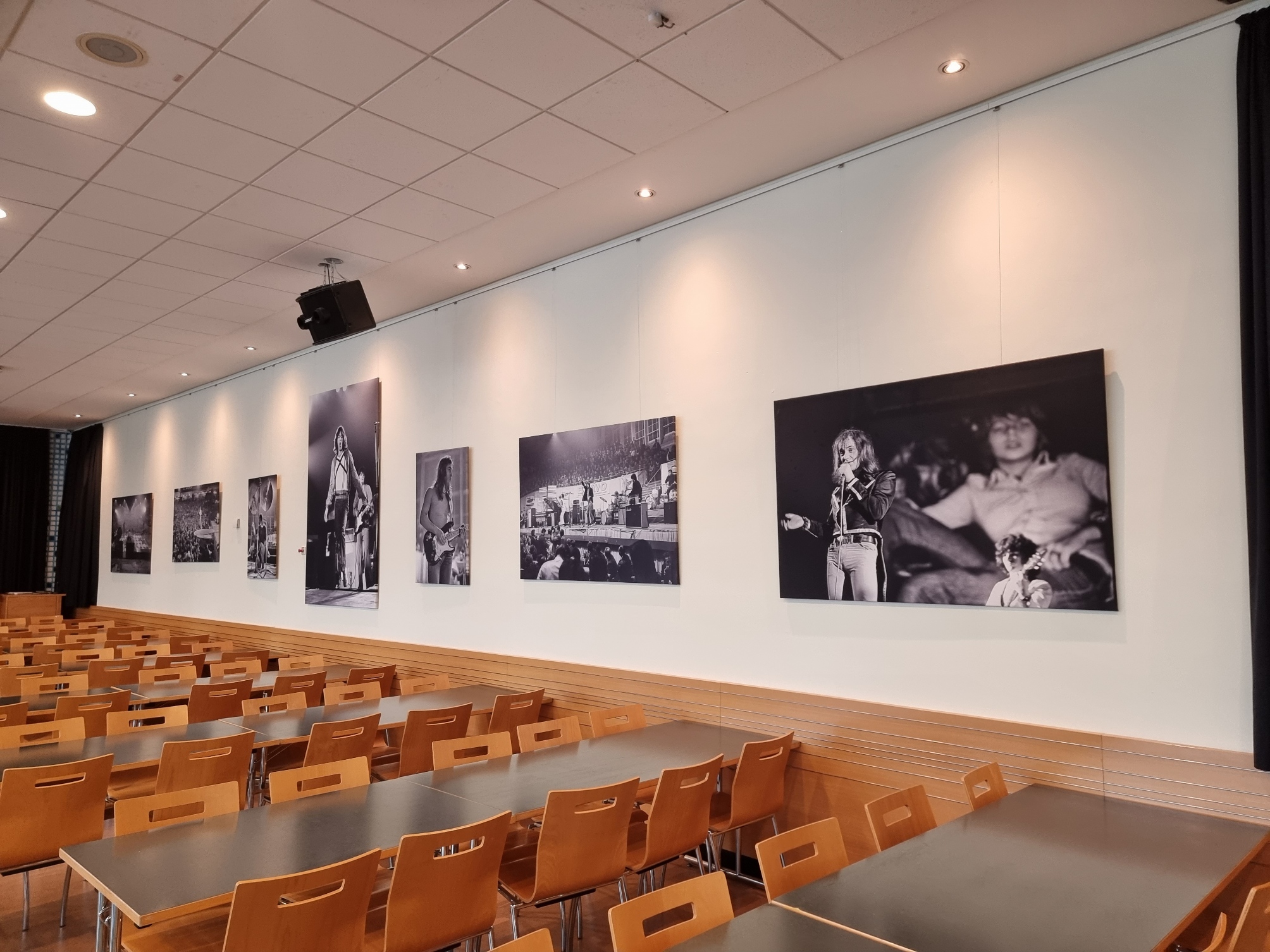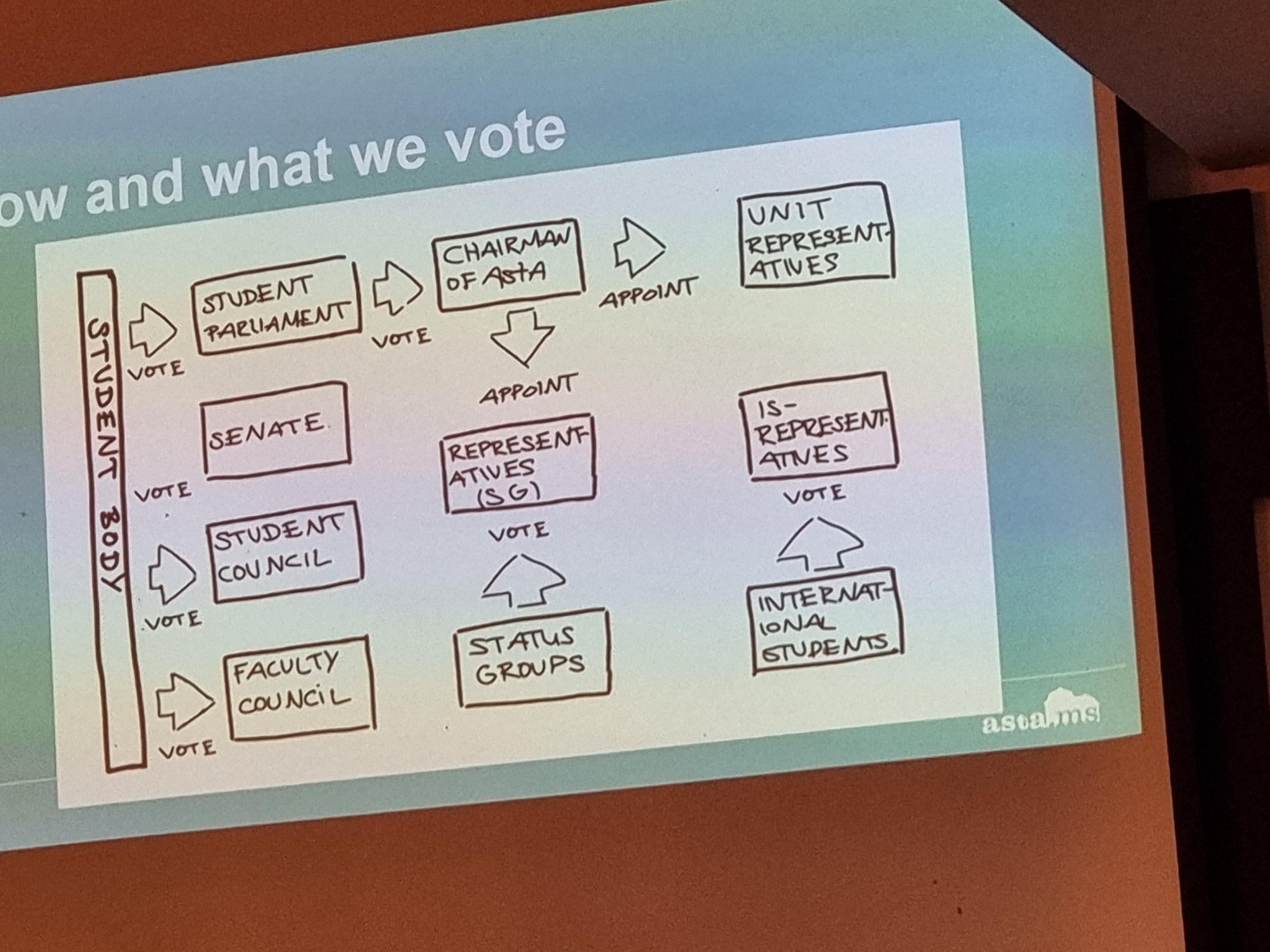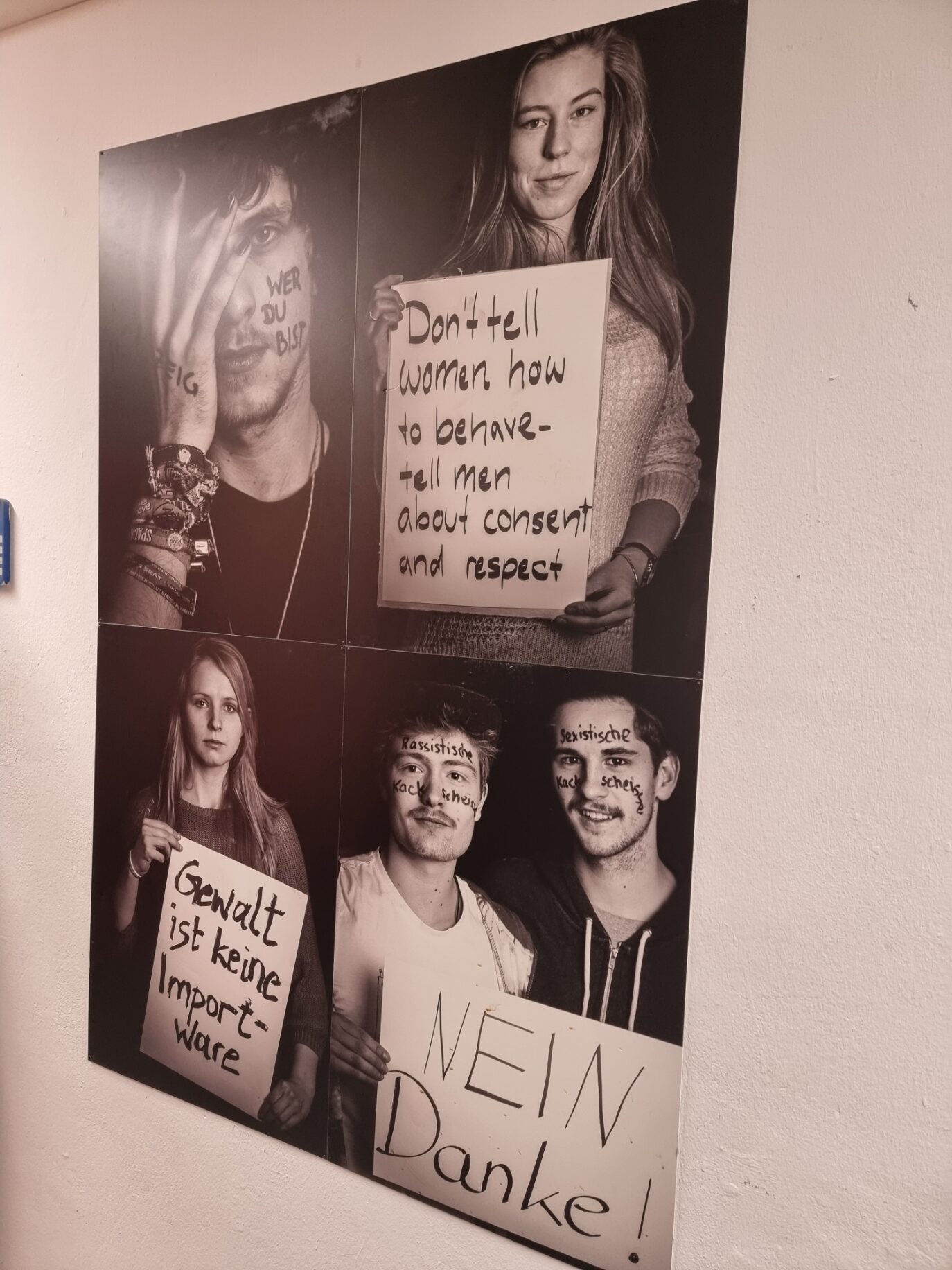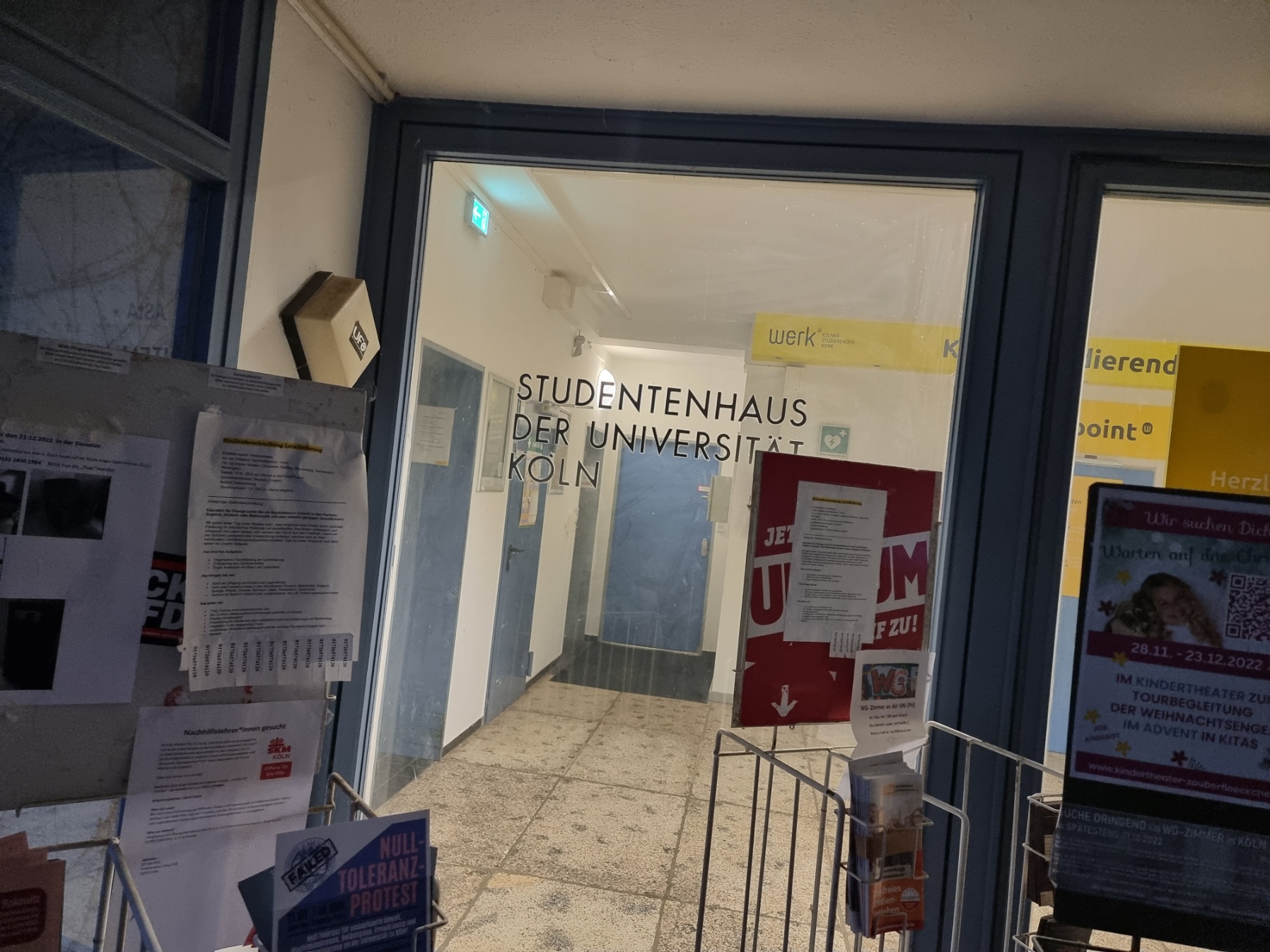Our penultimate stop on this year’s Wonkhe SUs European Study Tour took us to Münster, where we spent a morning in one of the impressive facilities run by the city’s Studierendenwerk.
Unlike in the UK’s stratified and often privatised system, in each major university locality in Germany there is a state mandated, not for profit student services organisation whose job it is to enable students to be successful in their studies.
They grew up as student self-help organisations in the 20s and 30s, largely in response to shortages of student housing – and today there’s 57 of them providing the “social infrastructure” for students so that the universities can focus on teaching and research.
They do all sorts of things – subsidised canteens and cafes, halls of residence, childcare, mental health support, support for student associations and administration of the BAföG program of student grants and loans – and are governed by a board that naturally includes a significant number of students.
There is a compulsory fee – although €99 per semester seems like a small price to pay when there are no tuition fees for EU students – and the services are both student focussed and strategic, with considerable long term investment in infrastructure and a focus on keeping prices low.

It did get us wondering why these sorts of services are almost always tied to a particular university in the UK. Are vice chancellors really the best people to be running halls or catering?
Separately at each university there is then a Allgemeiner Studierendenausschuss (AStA) – that roughly translates as General Students’ Committee, but for simplicity it’s the student representative body in each university.
AStA committees are usually elected by a student council or parliament rather than by cross campus ballot, and consist of one or more chairpersons as well as a set of “consultants” from different fields of study. They also often include so-called “Autonome Referate”, representing minorities in much the same way that UK liberation groups or networks do.
So over at the University of Köln, every winter semester the big democratic moment is the election of the AStA student parliament, where different student political groups compete against each other. There are 51 seats and rarely a majority – so after the elections, the groups hold coalition talks in order to form a majority.

The coalition then appoints the officers in the AStA which consists of a three-member board and various “speakers”, who then work in portfolios with student project managers on topics. That means (for example) that this year the speaker for social affairs will work on student accommodation, studying with children, inclusion, student finance and counselling services.
It’s a fascinating system that prioritises democratic engagement and policy over popularity – and we did wonder whether a similar “big democratic moment” that isn’t about electing officers might be created in the UK in the autumn term.
At Köln, a dazzling array of student-led projects are then supported. In the AStA bicycle workshop you can repair your bike yourself and keep it in good condition. Food Fair is a food saving and sharing project. A Kölsch course introduces students to traditional songs sung at the city’s carnival, and the KONSTANZE project offers students the chance to rent a cargo bike to transport a washing machine, beer crates or other bulky things without using fossil fuels.
Meanwhile Long Learning Nights is project which offers students in the university library that are staying until 2am catering and a support program to support learning “in a convivial atmosphere” with waffles, sandwiches and drinks – and the union’s museum tours help students to explore the diverse museum landscape of Cologne. They’re all projects inspired by and supported by the student council, where the parties use the election to propose both policies and projects that could benefit the student body.

And as we saw across the countries we visited, underpinning the main council are a series of faculty-based councils focussed on social activity, representation and peer support for that group of students. Here at the council for students in the Faculty of Economics, there’s work on finding places to study, orientation days for new students and recruitment of mentors for new undergraduates and postgraduates – along with detail on twelve student volunteer teams covering social events, soft and study skills, study support teams and trips.
It’s a system that maximises community and belonging locally, and appeared to generate volumes of involvement that we often don’t see in the UK. Could a UK students’ union pilot this kind of souped-up academic society by combining it with academic representation?
Nationally in Germany there’s an association for the Studierendenwerks that we saw that produced interesting research on the student condition – but it’s FZS, the “Free Federation of Student Unions” that does the formal representation and campaigning work. Given its small secretariat, it has an impressive range of campaigns – covering gender history, protecting students from sexualised discrimination and violence, support for energy bills and public transport costs.

It’s also pretty influential – fzs is regularly invited and consulted on legislative proposals at state and federal level – for example, on the Minimum Wage Ordinance, the Skilled Workers Immigration Act, the Federal Training Assistance Act (BAföG), but also on state legislation like the Higher Education Act. It’s a trusted body to supply intelligence and expertise on the student condition – involving and leaning on its member unions to help in the process.



















